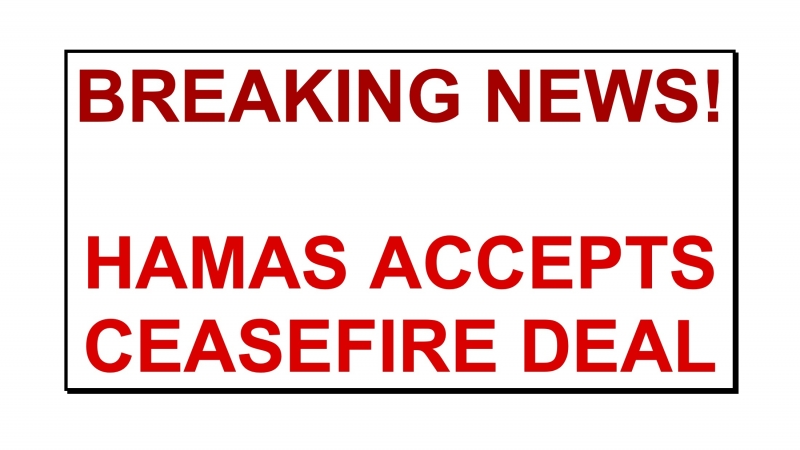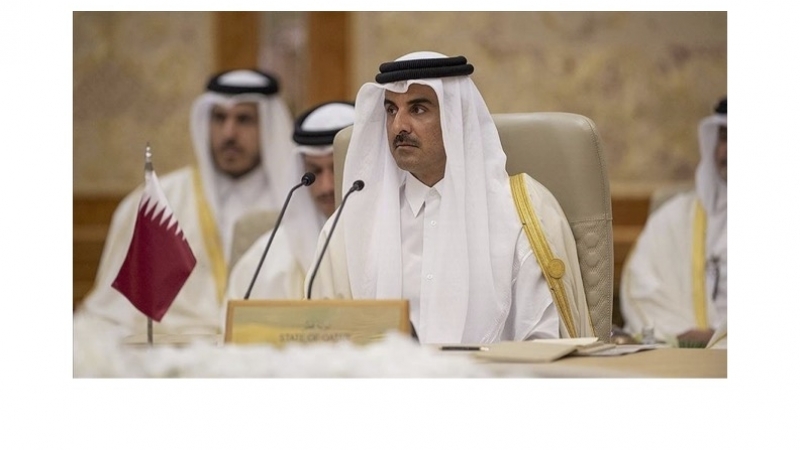Qatari Emir in Gaza
Developing Just LeadershipZafar Bangash
Dhu al-Hijjah 16, 1433 2012-11-01
Opinion
by Zafar Bangash (Opinion, Crescent International Vol. 41, No. 9, Dhu al-Hijjah, 1433)
The visit of the Emir of Qatar to besieged Gaza Strip has led to much discussion. Was it merely to express solidarity with the Palestinians or there was a broader political objective?
It was a six-hour dash in and out of the impoverished Gaza Strip by the oversized ruler of tiny Qatar but for al-Jazeera, it was a news extravaganza. The October 23 visit by Sheikh Hamad bin Khalifa al-Thani to Gaza was milked for all the publicity it could generate. Beyond symbolism, the visit has deeper political ramifications that must be considered. True, the Emir dropped a $400 million cheque to help rebuild roads as well as a new housing complex. The people of Gaza need all the help they can get given the brutal Zionist siege as well as the 22-day bombing in December 2008–January 2009 that destroyed much of Gaza’s infrastructure. In addition to killing 1,400 civilians, 30% of them children, more than 5,000 buildings were also destroyed by the Zionist aggressors. According to the UN, nearly 80% of Gaza’s population is food deficient.
The people of Gaza and the Hamas-led government cannot be faulted for giving the Qatari ruler a red-carpet welcome. “It is the first visit by an Arab leader at this level to Gaza,” Hamas said in a statement. “This breaks the political isolation of the government and opens the door to break the siege.” Sheikh Hamad’s visit definitely had the blessings of the US and Zionist Israel. He entered Gaza through the Rafah crossing from Egypt to which he returned afterwards. This begs the question, why President Mohammad Mursi has not visited Gaza that lies on Egypt’s border? After all, there is much in common between al-Ikhwan al-Muslimoon in Egypt to which Mursi belongs, and Hamas that is an offshoot of the Ikhwan.
This is where regional politics and the US-Zionist role come into play. With the loss of their favourite client, Hosni Mubarak, in Egypt, the Zionists and imperialists were panic stricken. The Saudi rulers were not up to the task to fill Mubarak’s shoes. Their top echelon is either in the grave or heading there soon. In any case, the Saudis do not like Hamas because it is not salafi enough and until recently it had close relations with Islamic Iran and Syria. Enter Sheikh Hamad, Emir of Qatar, a tiny Persian Gulf state that is full of gas and, therefore, flushed with dollars. Its small population is relatively peaceful, thanks to the regime’s generous handouts as well as limited “freedom” to kick around soccer balls and dress a la Hollywood and Broadway. Further, Qatar has crafted a regional niche by launching al-Jazeera, first in Arabic and then in English. Regardless of one’s opinion of al-Jazeera, it wields enormous influence in the Arabic speaking world. No other station — al-Arabiyya or any other — comes close.
Perched precariously on the eastern boundary of the Arabian Peninsula and jutting into the Persian Gulf, Qatar serves US-Zionist interests in other ways as well. It built the al-Udeid airbase outside the capital Doha, at a cost of $1 billion of its own money. It is used by US forces, free of cost, to continue wars of aggression in the region — until 2011 in Iraq, and still in Afghanistan, and to form part of a ring of fire around Islamic Iran. Qatar is also a major financier of the rebel and mercenary forces battling the Syrian government of Bashar al-Asad. In September, Sheikh Hamad used the UN platform, at the behest of his American masters, to call for “Arab armies to liberate Syria” since the West had failed to act.
There are other aspects of Qatar’s role that need examination. Without any formal diplomatic relations, Qatar has maintained a trade liaison with Zionist Israel since 1997. In January 2008, Qatar’s former Prime Minister Abdullah bin Khalifa al-Thani met Israeli Defense Minister Ehud Barak at the Davos Economic Forum in Switzerland. While the meeting was not given much publicity, within days, a senior Qatari official visited the Zionist State. This paved the way for former Israeli Foreign Minister Tzipi Livni to visit Doha in April 2008. She met the Emir, the prime minister and minister of oil and gas. Qatari-Israeli relations have grown apace since.
Tiny Qatar (population 1.9 million of whom only 300,000 are citizens), is trying to punch way above its weight in regional politics. The US encourages this, much to the chagrin of the Saudis with whom Qatar has a long-standing border dispute. For the imperialists and Zionists, Qatar’s small size and relative stability are major advantages. It is being used to undermine Iran’s influence in the region and the Emir is eager to play in the big league. But as the saying goes, the higher the monkey climbs, the harder it falls.
Wait for Humpty-Dumpty to have his great fall.
Zafar Bangash is Director of the Institute of Contemporary Islamic Thought.




